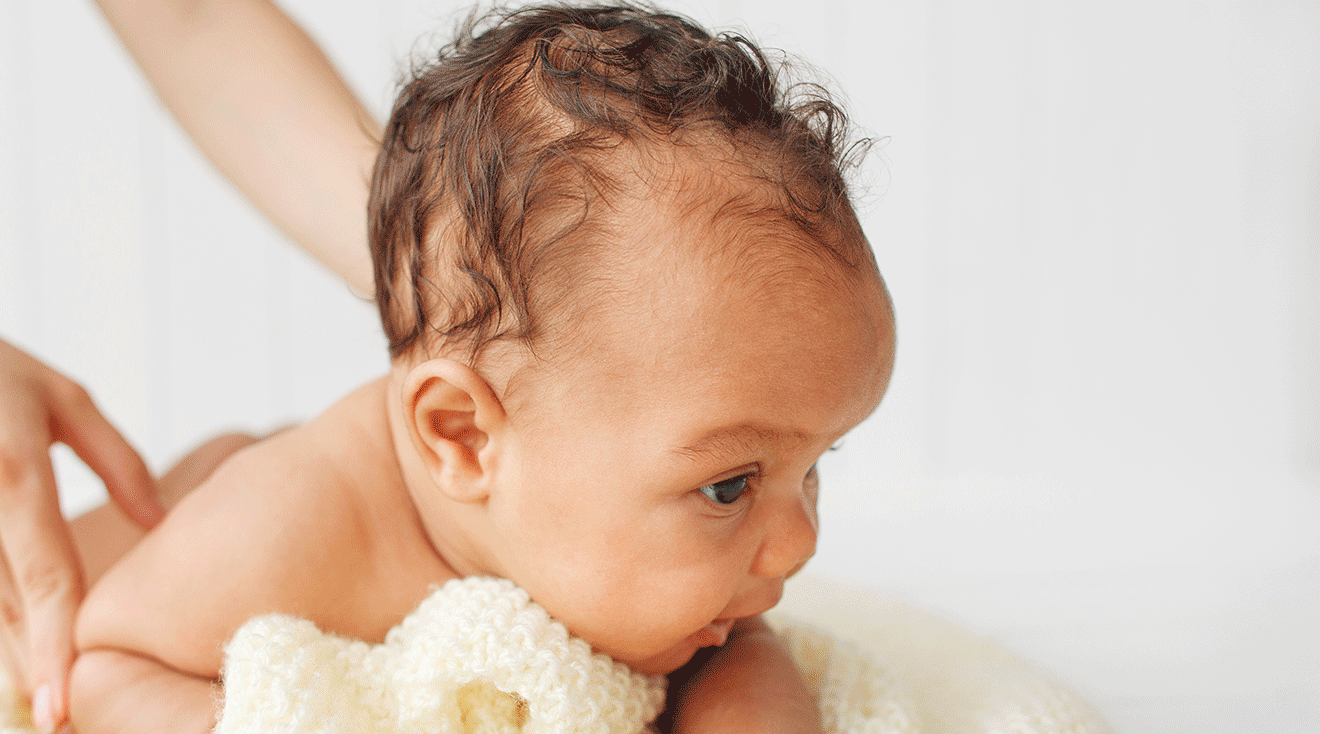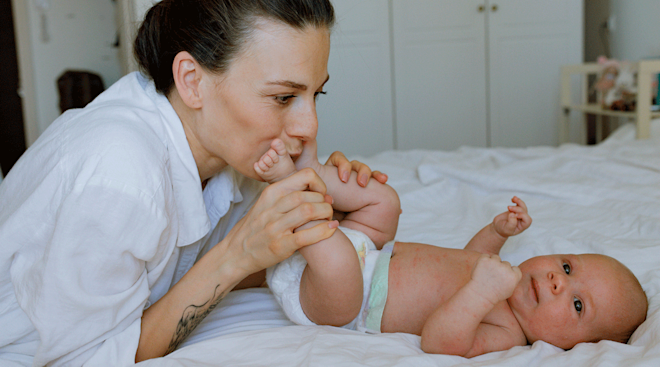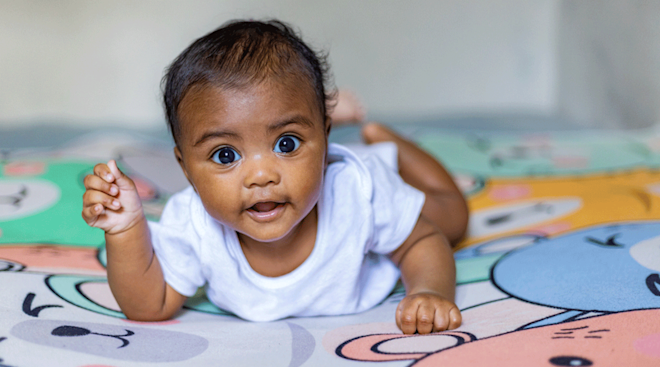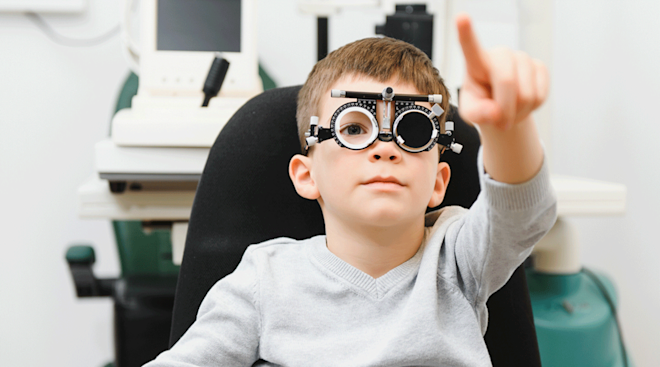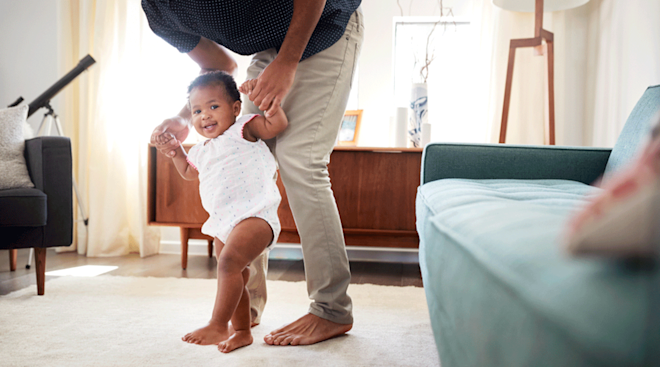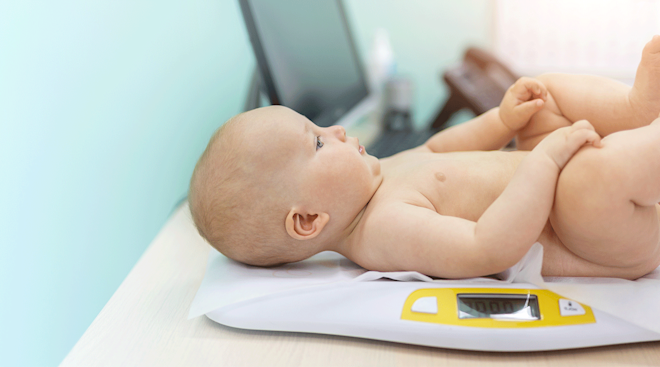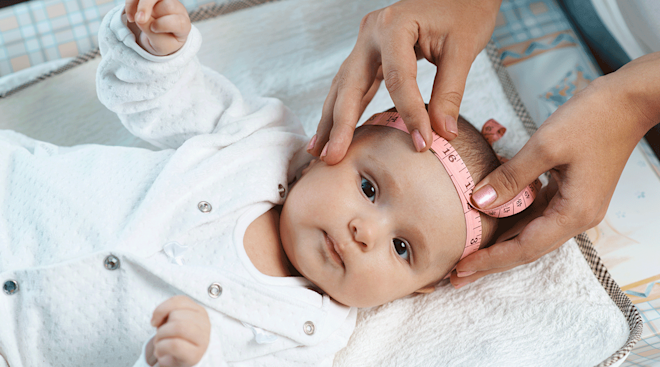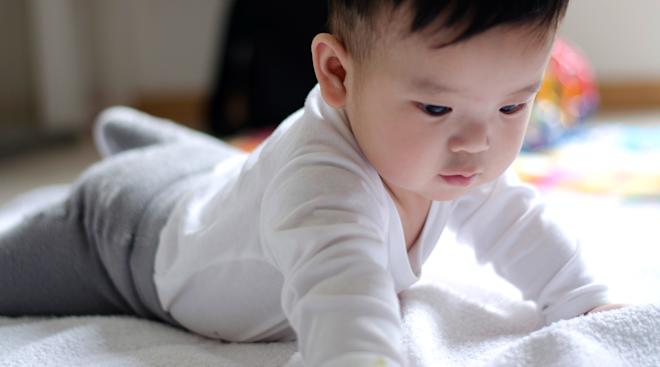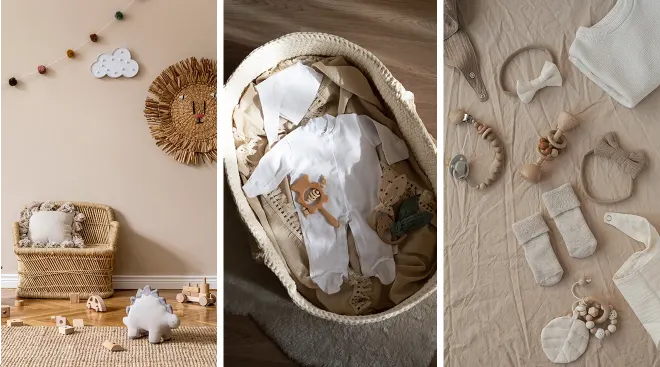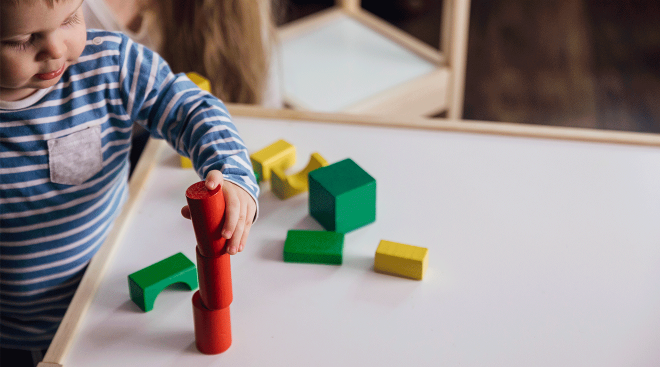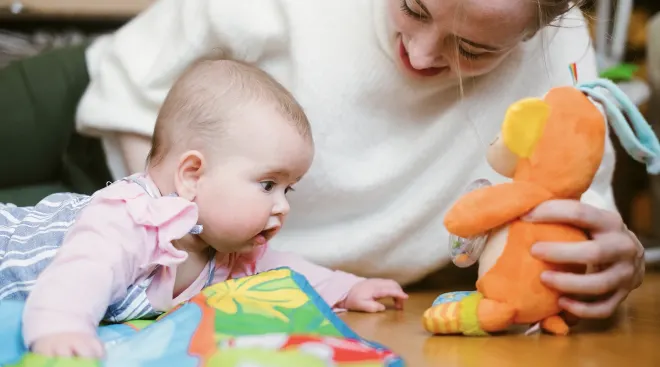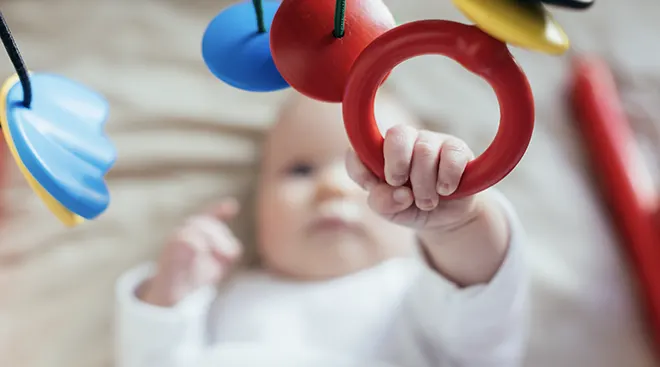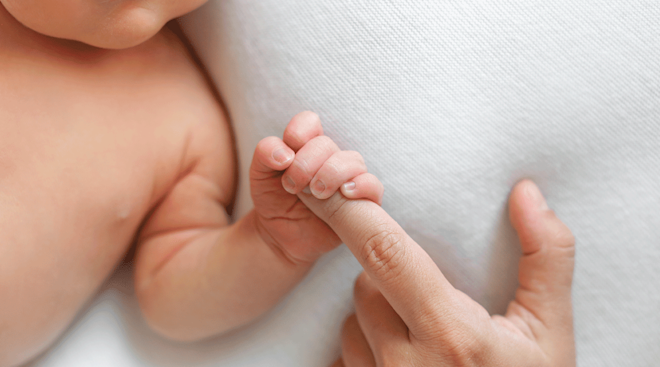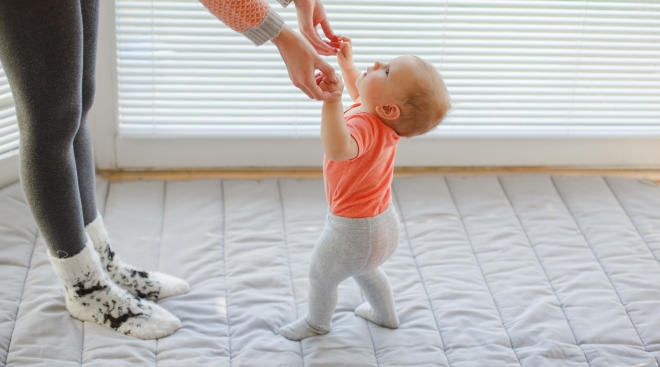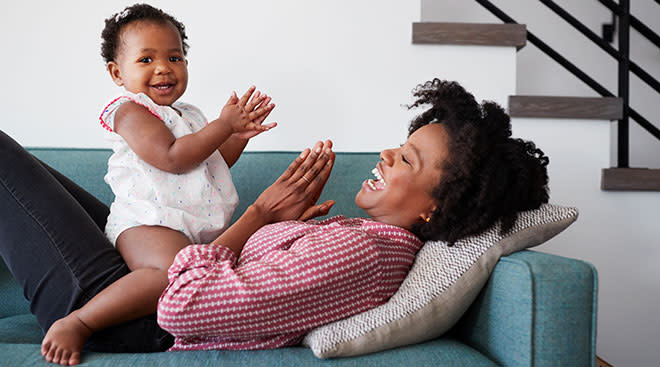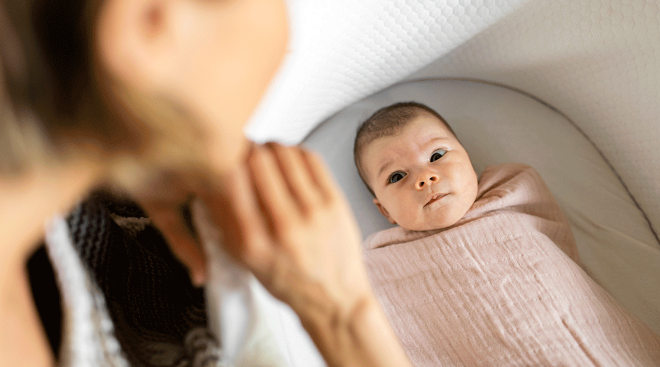When Do Babies Hold Their Head Up?
You already know it’s important to support your newborn’s head and neck. But at what point can you stop cradling their noggin—and when do babies hold their head up? It’s understandable if you’re feeling impatient. After all, having good head control not only allows baby to more readily learn more about their surroundings, it also sets the stage for even more milestones, like rolling over, sitting up, crawling and walking.
Ready to get a head start on this info? Read on to learn when babies start holding their head up, plus how to help your little one develop good head control.
When it comes to determining when babies can hold their head up, it’s important to know that there’s a range of normalcy. According to Jennifer Schwab, MD, a pediatrician at Connecticut Children’s Care Network and Rocky Hill Pediatrics, you can generally expect baby to be able to lift and turn their head by around month two. This includes while they’re on their belly during tummy time.
Of course, some infants may start slightly turning and lifting their heads as early as one month of age. “Significant control and the ability to hold their head up without support typically develop \between] 3 to 5 months of age,” says Gary Reschak, MD, a pediatrician at Northwestern Medicine Regional Medical Group.
Baby develops head control by strengthening the neck muscles through natural movement. Activities like tummy time can be a tremendous help with this, adds Daniel Ganjian, MD, a pediatrician at Providence Saint John’s Health Center in Santa Monica, California. The American Academy of Pediatrics (AAP) recommends baby practice tummy time for at least 15 to 30 minutes a day by the time they’re 7 weeks old. “Parents can break this down into smaller time frames—and time spent cuddling on Mom or Dad counts,” Schwab says. (While tummy time is important for babies, remember to place them on their back when it’s time to sleep to lower the risk of SIDS.)
To help keep baby engaged and encourage them to lift their head to look around, Reschak recommends using sounds and movements, as well as tummy time toys “Initially, their movements may be reflexive, but over time, as they engage more with their environment, these movements become more purposeful and help build muscle strength.”
Until they have good head control, it’s important to always support baby’s head and neck when they’re in your arms “Cradle their head when picking them up, holding them or changing their diaper,” Ganjian says. That said, their head should be gently cradled but not restricted from naturally moving, adds Reschak.
When can you stop supporting baby’s head?
You won’t need to support baby’s head forever. “You can start to reduce the amount of head support you provide as your little one gains strength, generally around 3 to 4 months,” Reschak says. “By around 4 to 6 months, most babies have enough control to hold their head up without support, but always assess your baby’s strength and comfort before stopping support entirely.”
There are plenty of milestones ahead for your child. “After babies can hold their head up, they often start to roll over, usually between 4 to 5 months,” Schwab says. From there, your little one will learn to sit up with support and then sit without support, Reschak adds. “These milestones typically occur in the subsequent months, eventually leading to standing and walking,” he says.
Along with motor milestones, once baby develops good head control, they can likely start eating solids, typically between 4 and 6 months.
Experts stress that every baby is different; some gain head control later than others. However, it’s important to be aware of the milestone’s general timeline and flag any concerns with your child’s pediatrician. “If by the age of 3 to 4 months, baby shows no signs of holding their head up or struggles significantly with control, it’s advisable to consult your pediatrician,” Reschak says. Moreover, reach out if you’re generally concerned about baby’s muscle tone or their overall development. “Early intervention can be crucial in addressing any underlying issues,” adds Reschak.
So when do babies hold their head up? There’s no definitive or universal answer. It’ll happen when your little one is ready. Of course, since it’s an important early milestone that’ll set them on a successful path of growth, development and learning, it’s natural to be concerned. That said, try not to stress about it. Before you know it, that little cutie will be holding their head up high and proud.
Please note: The Bump and the materials and information it contains are not intended to, and do not constitute, medical or other health advice or diagnosis and should not be used as such. You should always consult with a qualified physician or health professional about your specific circumstances.
Plus, more from The Bump:
Daniel Ganjian, MD, is a pediatrician at Providence Saint John’s Health Center in Santa Monica, California. He received a Bachelor's degree with highest honors from the University of California, Los Angeles, and a medical degree from the University of California, Irvine.
Gary Reschak, MD, is a pediatrician at Northwestern Medicine Regional Medical Group. He received his medical degree from St. George’s University School of Medicine and completed his residency at the Iowa Methodist Medical Center.
Jennifer Schwab, MD, is a pediatrician at Connecticut Children’s Care Network and Rocky Hill Pediatrics in Connecticut. She earned her medical degree from the University of Massachusetts Medical School and completed her residency at the Connecticut Children's Medical Center.
American Academy of Pediatrics, Back to Sleep, Tummy to Play, September 2023
Learn how we ensure the accuracy of our content through our editorial and medical review process.
Navigate forward to interact with the calendar and select a date. Press the question mark key to get the keyboard shortcuts for changing dates.
































